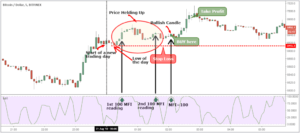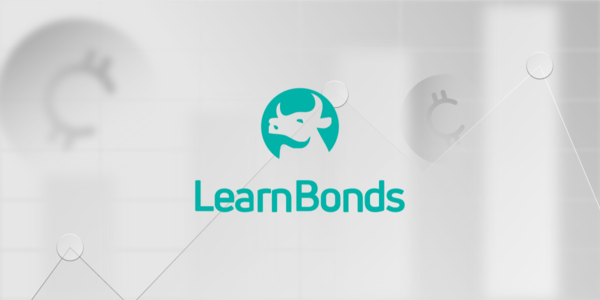Bitcoin Trading in South Africa – A Beginner’s Guide
If you’re based in South Africa and wish to trade Bitcoin from the comfort of your home, the process has never been easier. In fact, the cryptocurrency phenomenon has taken the country by storm in recent years, with more and more South Africans now looking to enter the Bitcoin trading market.
With that said, trading Bitcoin can be a daunting task if you are new to the space. Not only do you need to ensure you have a sound understanding of the market, but you also need to choose the right Bitcoin trading platform.
To help you out, this guide explains the ins and outs of how Bitcoin trading works in South Africa. Not only do we review the best Bitcoin trading platforms in South Africa, but we also provide a step-by-step guide on how you can get started with your first Bitcoin trade today!
-
-
How to Trade Bitcoin in South Africa in 3 Quick Steps
Don’t have time to read our guide all of the way through? Below you will find our three quick steps on how to trade Bitcoin in South Africa right now!
Step 1: Choose a South African Bitcoin Trading Platform
If you want to trade Bitcoin in South Africa, you will need to find a suitable cryptocurrency broker. This will allow you to buy, sell, and trade Bitcoin at the click of a button. With that said, knowing which cryptocurrency trading platform to sign up with can be challenging.
This is because you need to look at a range of factors to ensure the broker is right for you. For example, you will need to consider the platform’s fees, commissions, tradable cryptocurrency pairs, supported payment methods, and more.
To help you along the way, below you will find our five top-rated South Africa Bitcoin trading platforms.
1. Plus500 - Low Cost Bitcoin CFD Trading platform
Plus500 is a trusted online broker that specializes exclusively in CFDs. This means that you will be buying, selling, and trading Bitcoin without taking ownership of the underlying asset. You can trade Bitcoin with leverage of 1:2 on Plus500.
This broker offers a good number of other digital currencies that you can trade against the USD. Best of all, Plus500 does not charge any trading commissions. This means that the only trading-related fee that you need to look out for is the spreads, which are very competitive at Plus500.
When it comes to funding your account, Plus500 offers a selection of South African payment methods. This covers debit/credit cards, a bank wire, and Paypal. This UK-based broker requires a minimum deposit of £100, which is about 2,100 South African rand.
Plus500 is heavily regulated, with a number of tier-one licenses under its belt. This includes the FCA (UK), CySEC (Cyprus), ASIC (Australia), and MAS (Singapore). Its parent company is also listed on the London Stock Exchange.
If you are planning to buy and sell Bitcoin on the move, Plus500 offers a top-rated mobile app for iOS and Android devices. The app also allows you to check the value of your portfolio at the click of a button, and receive trading alerts in real-time.
Our Rating
- Regulated by the FCA and ASIC
- 0% trading commission
- Mobile app available
- No educational material
80.5% of retail investor accounts lose money when trading CFDs with this provider.2. FinmaxFX - Bitcoin Trading Site With High Leverage Limits
If you have a higher tolerance for risk, it might be worth considering the merits of FinmaxFX. The online broker offers a good selection of CFDs, including cryptocurrencies, stocks, indices, and commodities. In the Bitcoin trading department, you will have the option of short-selling and applying leverage.
While online brokers typically cap retail traders to leverage of 2x on cryptocurrencies, FinmaxFX has upped this to 10x. This means that a $200 account balance would allow a maximum trade size of $2,000. Unlike Plus500, FinmaxFX does not offer a proprietary trading platform of its own. Instead, the broker supports MetaTrader5 (MT5), which gives you access to a range of advanced trading tools.
In terms of payments, you will need to meet a minimum deposit of $250, which is about 4,200 South African rand. You can fund your account with a debit/credit card, e-wallet, bank account, or Bitcoin. The only thing you need to look out for in the payments department is that of transaction fees, as these can be on the high-side with FinmaxFX.
Our Rating
- Leverage of 10x on cryptocurrencies
- Accepts most popular payment methods
- Bonus available to new customers
- Trading and withdrawal fees are somewhat high
- No propriety platform
There is no guarantee you will make money with this provider.3. AvaTrade - Global Broker With MT4 Trading Platform
If you are used to trading on the global-standard of MT4 and MT5, it might be worth exploring AvaTrade. This is particularly useful if you are planning to trade Bitcoin with an automated robot, as you can easily link your system with AvaTrade via MT4/5 software.
When it comes to the platform's cryptocurrency department, you can buy and sell a range of digital currencies against the US dollar. Once again, as you will be trading CFDs you can easily apply leverage or short-sell Bitcoin. What we also like about AvaTrade is that it offers very competitive spreads.
This allows you to keep your trading costs to an absolute minimum. AvaTrade also supports a mobile trading app that can be downloaded free of charge. This gives you access to most of the account features that you will find on its main trading platform. In terms of getting started, it takes just minutes to open an account with AvaTrade.
You can deposit funds with a debit/credit card or bank account. Minimum deposits start at $100, which amounts to about 1,700 South African rand. Finally, you should have no concerns about the safety of your funds, as AvaTrade is heavily regulated. This includes licenses in South Africa, Ireland, Japan, and Canada.
Our Rating
- Spreads from just 0.9 pips
- Multiple licenses
- Both MT4 and MT5 supported
- No fundamental research features
- Its educational resources are sparse
There is no guarantee you will make money with this provider.4. IG - Established Broker With a Cryptocurrency Index
IG is a UK-based broker that accepts South African traders. The broker has a long-standing reputation in the online trading space, with the platform first opening its doors back in 1974. With more than 178,000 clients under its belt, IG is well worth considering in your hunt for a top-notch Bitcoin trading site.
All of the cryptocurrency pairs supported by the broker are paired against the US dollars. As you will be trading crypto-CFDs, this gives you the option of going short on your chosen pair. You will also be able to apply leverage of up to 2x, which effectively doubles your account balance at the click of a button.
What we also like about IG is that it offers a cryptocurrency index. This allows you to place a buy or sell order on 10 different cryptocurrencies via a single trade. This is useful if you want to speculate on the wider cryptocurrency markets, as opposed to trading a single coin.
In terms of the fundamentals, IG does not charge any trading commission, and spreads are super-tight. You can get money into and out of your trading account with a debit/credit card or South African bank account. Minimum deposits start at £250m which is about 5,300 rand. Finally, you will be charged 0.5%/1% to use MasterCard or Visa.
- Spreads from 0.6 pips
- Supports MT4 trading platform
- Excellent research department
- 1% fee when using Visa and 0.5% via MasterCard
- Spreads on some crypto pairs are somewhat expensive
There is no guarantee you will make money with this provider.Step 2: Learn How the Bitcoin Trading Market Works in South Africa
So we’ve taken you through the best Bitcoin brokers, but before you start trading, we recommend having an understanding of how Bitcoin trading actually works. Bitcoin is a notoriously volatile instrument, so it’s important you’re aware of the risks before you put your money on the line.
What is Bitcoin and How do you Trade it?
Bitcoin is a digital currency that was first launched in 2009. Its creator, an anonymous developer known only as ‘Satoshi Nakamoto’, wanted to create a new payments system that allows users to send and receive funds in a ‘decentralized’ nature.
In layman’s terms, this means that the Bitcoin network does not require a third-party intermediary to confirm transactions. It is able to do this through its underlying technology, known as the ‘blockchain’. In a nutshell, the blockchain ensures that Bitcoin is not controlled by any single person or authority.
All transactions are sent anonymously, though each and every transfer appears on the public ledger in a transparent manner. In terms of ‘trading’ Bitcoin, this works much the same as any other asset class in the investment arena. That is to say, you will be speculating on whether you think the price of Bitcoin will go up or down.
The digital currency is typically traded against the US dollar, although you can also buy an sell it against other cryptocurrencies. This includes the likes of Ethereum, Ripple, Bitcoin Cash, EOS, and many others. In order to do this, you will need to find a reliable online broker that supports Bitcoin trading in South Africa, such as the five we discussed earlier in our guide.
You can choose to buy Bitcoin and then sell it, with the idea being that you sell it for a higher price than you bought it for. Alternatively, you can trade Bitcoin contracts for difference (CFDs). This allows you to trade the price of Bitcoin without owning the underlying asset. It means you can go short and speculate on the price going down, and it also allows you to trade with leverage, meaning you borrow capital from your broker to make larger trades.
What is the Difference Between Forex Trading and Bitcoin Trading?
If you are completely new to Bitcoin trading, the easiest way to get your head around it is to think about the traditional forex markets. For those unaware, forex trading is the process of buying and selling currency pairs like EUR/USD and GBP/USD.
The overarching concept is to speculate whether you think the price of the pair’s exchange rate will go up or down. After all, currency prices will change on a second-by-second basis, which makes it highly conducive for trading.
In the case of Bitcoin trading, the process works largely the same. The difference is that either one or both sides of the trading pair will contain a digital currency like Bitcoin.
Let’s look at a quick example in order to clear the mist.
- You want to trade Bitcoin against the US dollar, so you are trading BTC/USD
- The ‘buy’ price of BTC/USD is $9,800
- The ‘sell’ price of BTC /USD is $9,700
- You think the price of BTC/USD will increase so you place a buy order word $500
- Later in the day, the price of BTC/USD increases to $10,100, and you decide to cash in your profits by placing a sell order
- On a stake of $500 you make gains of 3.06%, which amounts to a profit of $15.30
As you can see from the above example, Bitcoin trading works in exactly the same way as forex trading. Only instead of trading two fiat currencies, we traded a fiat currency (USD) against a digital currency (BTC). As noted earlier, you can also trade a digital currency against another cryptocurrency.
What Regulations are in Place for Trading Bitcoin in South Africa?
Regulation of cryptocurrencies in South Africa is somewhat of a grey area. On the one hand, buying, selling, and trading Bitcoin as a South African resident is perfectly legal. In fact, there are heaps of online platforms that allow you to do this with ease. On the other hand, cryptocurrency exchanges that are physically based in South Africa are largely unregulated.
This means that your capital is at risk in the event the broker runs into financial difficulties. It is also important to note that a number of domestic financial institutions, including that of First National Bank, have already come forward and stated that they will no longer deal with cryptocurrency exchanges.
What this means for you as a South African is that you will find it difficult to deposit and withdraw funds with a debit/credit card or bank account. The good news is that there are lots of overseas Bitcoin brokers that accept South African traders. Best of all, some of these brokers hold tier-one regulatory licenses.
This includes the likes of the FCA in the UK, which regulates everything from UK stock brokers to the best trading apps in the UK. Another respected regulator is ASIC of Australia, while Cyprus’ CySEC is also highly regarded.
These governing bodies enable you to trade Bitcoin in a safe and secure environment. This is because regulated brokers are required to store client funds in segregated bank accounts, and all traders are required to identify themselves. Furthermore, using a regulated cryptocurrency broker to trade Bitcoin means that you can deposit and withdraw funds with a local payment method.
What Risks are Involved with Bitcoin Trading in South Africa?
The main risk that you need to consider when trading Bitcoin is that you could lose money. Bitcoin is a very volatile asset, which means its price can significantly rise and fall in short periods of time. In fact, the vast majority of newbie investors will lose capital when trading cryptocurrencies for the first time, so it’s crucial that you start off with small stakes. You also need to familiarize yourself with the market and try out risk management tools, such as stop-loss orders.
You also need to consider the regulatory risks, insofar that new cryptocurrency legislation in South Africa could one day impact the industry in a negative manner. This became evident when First National Bank made the decision that it will no longer service cryptocurrency exchanges.
How do Trading and Investing in Bitcoin Differ From Each Other?
There are typically two types of investment avenues that you can take when accessing the Bitcoin marketplace. If you are simply looking to ‘invest’ in Bitcoin, this means that you will be purchasing coins outright, and then storing them in a private wallet.
This is suited to someone that plans to hold on to the coins for a number of months or years, and then sell them at a later date at a profit. With that said, Bitcoin ‘trading’ is somewhat different from traditional investing. This is because you will be buying and selling cryptocurrency pairs on a short-term basis.
This might be via swing trading or even day trading. The key point is that you will be actively trading Bitcoin with other fiat or digital currencies. You will be looking to make smaller but frequent gains, which is why most traders operate on a full-time basis.
You will also be required to perform lots of research to help you predict which way the markets are likely to go in the short run. On the contrary, those that ‘invest’ in Bitcoin are not concerned with short-term pricing movements, as they are happy to ride out market waves over a long period of time.
What Analysis Techniques can be Used for Bitcoin Trading in South Africa?
As we briefly noted in the section above, all Bitcoin traders in South Africa are required to perform in-depth research if they wish to succeed in the cryptocurrency space. After all, you will be speculating on which way you think your chosen pair will move in the markets – so you need to make an informed investment decision that is based on logic.
This is split between fundamental analysis and technical analysis, which we outline below.
Fundamental Analysis
Fundamental analysis refers to research that centres on real-world events that impact the price of Bitcoin. In other words, the idea is to assess how a relevant developments, such as regulatory changes, could impact the future price of a cryptocurrency like Bitcoin. For example, let’s suppose that the US president announced that they were considering banning cryptocurrency trading in America. It is all-but-certain that this would have a negative impact on the price of Bitcoin.
In another example, let’s suppose that China announces that it is considering allowing ICOs (Initial Coin Offerings) to return to the country. As this is a positive news development, it would likely result in Bitcoin increasing in value. Crucially, fundamental research is fairly straight forward for newbie investors to pick up, unlike its technical analysis counterpart.
Technical Analysis
When a trader analyzes historical charting patterns, this is known as technical analysis. The overarching concept is to look at these historical trends, and how the trends relate to current pricing.
Then, the seasoned trader will make an informed decision as to whether they think the price of the Bitcoin pair will go up or down. In order to do this, the trader will make use of technical indicators like the MACD, RSI, Fibonacci Retracement and many others.
It can take a newbie trader several months before they get comfortable with technical analysis. But, if you are serious about making long-term gains in your quest to trade Bitcoin, it is imperative that you spend the required time learning how it works.
Step 3: Choose a Bitcoin Trading Strategy
So now that you know the importance of technical and fundamental analysis, you now need to have a think about the type of Bitcoin trading strategies that you plan to use. The strategy that you go with will ultimately depend on what your long-term trading goals are.
Below we list some of the most commonly utilized strategies employed by Bitcoin traders in South Africa.
Day Trading
Bitcoin Day traders actively buy and sell cryptocurrency pairs. They will keep positions open for a number of minutes or hours, but rarely more than a day. The aim is to make small, but frequent gains when the Bitcoin trading price changes throughout the trading day. Day traders actually seek volatility, as it presents ample opportunities to make gains.
Scalping
Scalping will see a seasoned trader ‘scalp’ small profits when Bitcoin trades between a tight range. For example, let’s suppose that Bitcoin has been trading between $8,500 and $8,700 for the past few days. Ordinarily, this indicates that the markets are undecided on which way Bitcoin will go, so the digital currency moves into a ‘consolidation period’.
As such, Bitcoin has not gone lower than $8,500 and higher than $8,700 for several days. In turn, a scalping trader will capitalize on this by placing lots of buy and sell orders for as long as the consolidation period is in play. For example, they might place a sell order at just below $8,700, and then cash out their gains at just above $8,500!
Swing Trading
Swing trading is a short-to-medium term Bitcoin trading strategy. The trader will typically keep their positions open for a number of days or weeks. The main objective is to trade Bitcoin as new trends form. For example, let’s say that there is a lot of bullish sentiment around Bitcoin, as it has just broken a key resistance line of $7,800.
The swing trader will likely keep their buy order open until it appears the trend is about to reverse. If a reversal of the trend is in the making, the swing trader will then place a sell order to capitalize on it. Ultimately, you will need to have a firm understanding of both fundamental and technical analysis to succeed as a Bitcoin swing trader.
Holding
Holding isn’t a strategy per-say, as it simply refers to a long-term investment into Bitcoin. That is to say, you will be buying Bitcoin in the traditional sense, holding on to your investment for a number of months or years, and then hope to sell your coins in the future at a much higher price.
Crucially, holding Bitcoin doesn’t require any knowledge of technical or fundamental research, as you are investing in the project because you believe it will be worth a lot more in the future. Moreover, there is no requirement to worry about short-term ups and downs, as you are only interested in the long-term game!
Bitcoin Breakout
After a consolidation period, which is where Bitcoin trades between a tight range for several days, it is often the case that Bitcoin will eventually ‘breakout’. In simple terms, this means that when the digital currency does eventually break away from the consolidation period, it will move to the upside and downside sharply.
This could be anything from 2-10% in the space of 24 hours. The good news is that skilled traders are not concerned with the direction that Bitcoin takes after breaking out, as they will place buy and sell orders at both ends of the range. This has the desired effect of profiting from the Bitcoin breakout regardless of whether the trend goes up or down.
Step 4: Open a Bitcoin Trade
Now you are ready to open a BTC trade.
Simply set up an account with a broker of your choosing and the steps should be self evident.
Pros and Cons of Bitcoin Trading
Pros
- Bitcoin can be traded around the clock – the markets never close
- Volatility creates plenty of trading opportunities
- You can trade Bitcoin against fiat currencies or other digital coins
- Daily trading volumes are now in the billions of dollars – never struggle for liquidity
- Lots of Bitcoin trading platforms are regulated by tier-one licenses bodies
- You can easily fund your Bitcoin trading account with a South African debit/credit card or bank account
- Ability to short Bitcoin if you think its price will go down
Cons
- Bitcoin is a highly speculative asset class
- You could lose money
- Some Bitcoin trading platforms in South Africa operate without a regulatory license
Conclusion
In summary, Bitcoin trading in South Africa is getting more and more popular in the domestic market. On the one hand, most home-grown cryptocurrency exchanges still operate without a license. which is why the likes of First National Bank no longer service platforms with fiat facilities. On the other hand, there are heaps of overseas brokers that accept South Africans.
In fact, all of the Bitcoin trading platforms that we have discussed are regulated by tier-one bodies like the FCA and ASIC. They also allow you to easily deposit funds with a South African debit/credit card or bank account. With that being said, you still need to make sure you have a firm understanding of the risks when trading Bitcoin, as most newbie investors end up losing money.
References
To ensure we bring you the most reliable and accurate information possible, our writers use primary sources to support their content. These include studies, government resources and commentary from industry experts.
- Global Legal Insights. “Blockchain & Cryptocurrency Regulation in 2020 – South Africa, https://www.globallegalinsights.com/practice-areas/blockchain-laws-and-regulations/south-africa“, Accessed June 8 2020.
- Barker McKenzie. “Blockchain and Cryptocurrency in Africa, https://www.bakermckenzie.com/-/media/files/insight/publications/2019/02/report_blockchainandcryptocurrencyreg_feb2019.pdf“, Accessed June 8 2020.
FAQs
What is Bitcoin trading?
Bitcoin trading is the buying and selling of Bitcoin or Bitcoin contacts for difference (CFDs) with a view to making a profit. With buy and selling Bitcoin, you profit if you sell it for more than you bought it for. With CFDs, you can profit when the price of Bitcoin goes up or down.
What fiat currencies can I trade Bitcoin against?
Although some online brokers allow you to trade Bitcoin against the Euro, Yen, or Pound – the vast majority of platforms will offer USD-denominated pairs. This is because BTC/USD is the most traded pair in the cryptocurrency markets.
Is it safe to use a Bitcoin broker based outside of South Africa?
This will ultimately depend on the specific broker that you decide to sign up with. For example, if you are using a licensed platform like Plus500, or IG, you will benefit from lots of regulatory safeguards. On the other hand, not all overseas Bitcoin brokers are licensed, so be sure to check this before signing up.
Can I trade Bitcoin with leverage in South Africa?
Yes, you can easily trade Bitcoin with leverage when using an online broker that supports CFDs. Most brokers will cap this to 2x when trading cryptocurrencies. Some brokers, such as FinMaxFX, offers limits of 10x.
What South African payment methods can I use to trade Bitcoin?
If you are using a regulated broker that is licensed to accept fiat currency, you should be able to deposit and withdraw funds with a South African debit/credit card or bank account. Some brokers also support e-wallets like Paypal and Skrill.
Kane Pepi
View all posts by Kane PepiKane holds academic qualifications in the finance and financial investigation fields. With a passion for all-things finance, he currently writes for a number of online publications.
Latest News
WARNING: The content on this site should not be considered investment advice and we are not authorised to provide investment advice. Nothing on this website is an endorsement or recommendation of a particular trading strategy or investment decision. The information on this website is general in nature, so you must consider the information in light of your objectives, financial situation and needs. Investing is speculative. When investing your capital is at risk. This site is not intended for use in jurisdictions in which the trading or investments described are prohibited and should only be used by such persons and in such ways as are legally permitted. Your investment may not qualify for investor protection in your country or state of residence, so please conduct your own due diligence or obtain advice where necessary. This website is free for you to use but we may receive a commission from the companies we feature on this site.
Copyright © 2022 | Learnbonds.com
We use cookies to ensure that we give you the best experience on our website. If you continue to use this site we will assume that you are happy with it.Scroll Up





 Bitcoin is a digital currency that was first launched in 2009. Its creator, an anonymous developer known only as ‘Satoshi Nakamoto’, wanted to create a new payments system that allows users to send and receive funds in a ‘decentralized’ nature.
Bitcoin is a digital currency that was first launched in 2009. Its creator, an anonymous developer known only as ‘Satoshi Nakamoto’, wanted to create a new payments system that allows users to send and receive funds in a ‘decentralized’ nature. Regulation of cryptocurrencies in South Africa is somewhat of a grey area. On the one hand, buying, selling, and trading Bitcoin as a South African resident is perfectly legal. In fact, there are heaps of online platforms that allow you to do this with ease. On the other hand, cryptocurrency exchanges that are physically based in South Africa are largely unregulated.
Regulation of cryptocurrencies in South Africa is somewhat of a grey area. On the one hand, buying, selling, and trading Bitcoin as a South African resident is perfectly legal. In fact, there are heaps of online platforms that allow you to do this with ease. On the other hand, cryptocurrency exchanges that are physically based in South Africa are largely unregulated.


